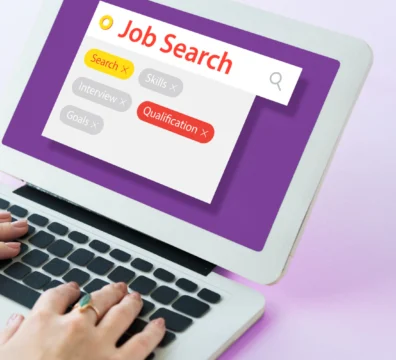Since the last decade, there have been a lot of changes in the HR industry. For example, more people started working from their homes or remotely, new technologies were introduced, employee well-being became a priority, etc. Altogether, these disrupted how your human resource team performed their activities.
According to research, nearly 68% of recruiting professionals believe investing in a new recruiting technology can improve their recruiting performance. Similarly, 94% of HR professionals say using HR software has positively impacted their hiring process.
On the other hand, those companies still depending on age-old recruitment approaches aren’t getting much results. Therefore, all companies need to understand the latest trends in HR and implement them in business for better results. This article will briefly discuss similar trends in human resource management.
Top Trends in Human Resource Management
Before you dive into the latest trends in human resource management (HRM), let us first understand what it is. HRM is the approach for organising, coordinating, managing and allocating your human capital or employees to meet organisational goals. They develop and enforce multiple policies and procedures that ensure workers’ safety.
However, with the changing market scenario and employee demands, the future of human resource management is at risk unless you watch out for the trends.
We have listed a few of the latest HRM trends you must follow to keep your talents longer in business and ensure organisational success.
Promoting Diversity, Equity, and Inclusion
One of the most important trends influencing human resource management is promoting DEI initiatives in the workplace. This is no longer a box-ticking exercise but a critical aspect of business success. DEI refers to diversity, equity, and inclusivity, three essential aspects of the modern workplace that showcase your respect for talents from different backgrounds.
Besides being a legal and moral obligation, DEI initiatives enhance creativity, innovation, and customer satisfaction. To cope with these new HR concepts and techniques, you must implement fair and transparent policies and practices for all, irrespective of gender, sex, colour, ethnicity, etc.
Perfect Balance Between Office and Remote Work
Remote working or hybrid working has been on the list of top HR trends in the last few years. But, with the outburst of the COVID-19 pandemic, the total count of remote workers has increased significantly, and this graph will keep rising steeply in the future.
However, not all professions will let your employees work from home, at least not full-time. You need them at the office or ensure a hybrid work culture. It is at the top of current HR trends and challenges, and your HR needs to find a compromise that benefits the company and the employees.
Prioritising Employee Experience
According to predictions, by 2030, there will be a talent shortage of more than 85 million people globally. It means if you aren’t focusing on your existing workforce, you may lose top talents and find difficulty in hiring new ones.
This makes prioritising employee experience essential for companies to achieve success. You must ensure all your employees have everything they need to fulfil their responsibilities and stay safe.
Besides offering them necessary equipment, leveraging well-being programs, ensuring work flexibility, and developing a better work environment is essential.
Focusing on Employee Well-Being
Employees seek an organisation that values their contributions and ideas more than a good paycheck. This urges your HR leaders to promote a positive work culture and ensure a healthy work environment.
Now, the question is how to foster a positive and healthy work environment.
Some solutions that you can consider are:
- Offer flexible work schedules
- Encourage employee proposals
- Allow the interchange of ideas and collaborations between teams
- Promote proper work-life balance
- Restructure your HR solutions based on employee well-being and physical and mental wellness provisions
Funding Employee Growth and Development
In a recent study, we found employees can leave your company if you aren’t investing in their professional development. We asked them if high payments could retain them in business for longer, but the reply was “No”.
On the other hand, organisations forecasted the need for new skills to cope with market changes. Rather than investing time and money in hiring new people, you can train your existing talents. The key to making your employees learn continuously is to create e-libraries, online workshops, and e-courses.
Otherwise, you can also introduce learning programs in-office for skill building, reskilling and mentorships.
Allowing Millennials and Gen Z to Lead
More than half of the total employees by 2025 are expected to be millennials and Gen Z population. These young generations prefer navigating the workplace almost entirely digitally. Therefore, one of your current HR trends and challenges is to undergo a digital transformation.
You need to swap manual procedures with automation, mobile apps and smartphones for better employee engagement and productivity. To attract and retain these tech-savvy generations, you must adapt different HR technologies for improved onboarding, employee training, communication and collaboration, and flexible working.
Reporting and Data Analytics
Organisations’ data-driven decisions are one of the latest trends in human resource management. The AI integration with HR technology has contributed to increased employee productivity levels.
Companies in the GCC are experiencing a gradual shift towards data analytics for decision-making rather than depending on assumptions, intuitions, or past experiences. This move will enhance your decision-making process and ease cost analysis and other calculations.
How 6 Pence Helps
All companies need to stay updated with the latest trends in human resource management. We have listed only a few of these trends that can help you attract, manage, and retain employees better. Furthermore, they can automate your repetitive manual tasks, improve your business reputation, and ensure better productivity.
However, if you are struggling to understand these new trends in human resource management, you can seek advice from us. 6 Pence offers staff outsourcing services (Payroll outsourcing, recruitment, and PRO services) to business associates in Oman, Iraq, Bahrain, and Dubai. We understand your business requirements, study your market demands, latest trends and technologies, and advise you for better outcomes. For more details, you can connect with us today!
Frequently Asked Questions
What are the trends in HRM?
Some of the common trends in HRM include the use of HR technology, focusing on employee experience and well-being, better professional career development, advanced people analytics, promoting DEI initiatives, etc.
What are the top 5 HR strategies?
The top 5 HR strategies include fulfilling legal requirements, employee engagement, career advancement programs, positive corporate image, and advanced performance management systems.
Why is it important to know HR trends?
It is important to stay updated with HR trends to protect your company from financial loss, decrease in customer service, loss of talent, and reputation damage.
Also Read: Top 10 Demand Forecasting Techniques in HRM




































































































